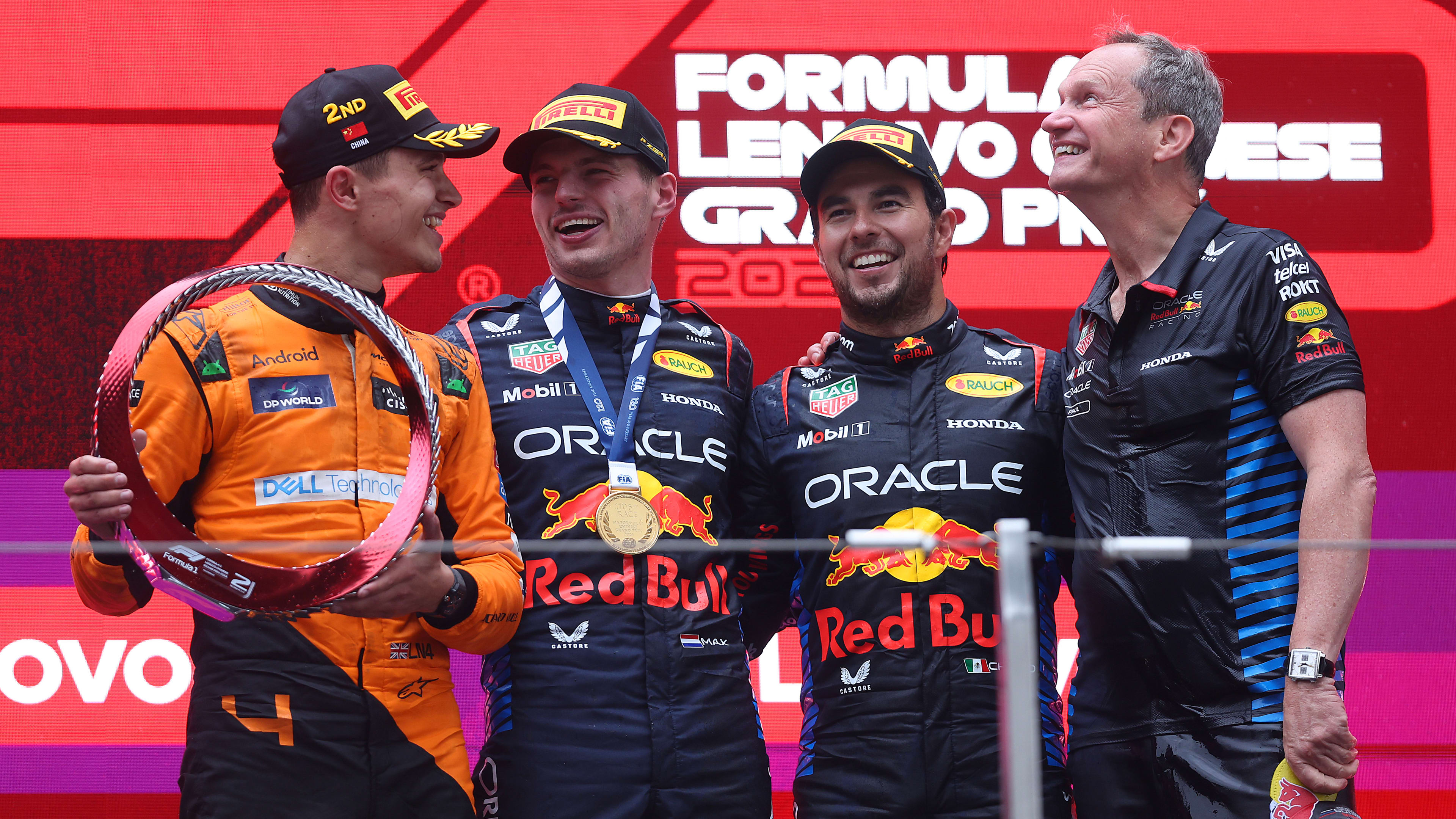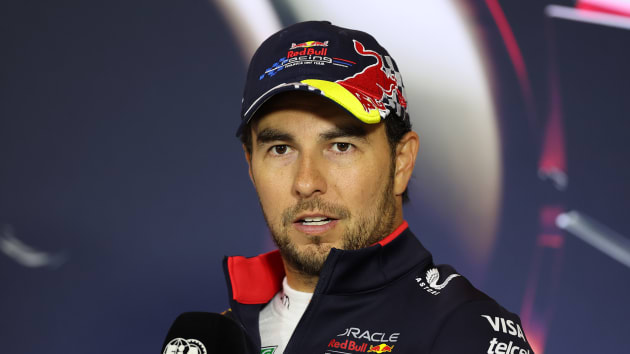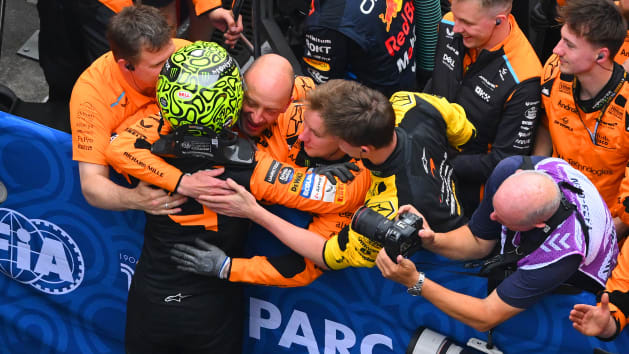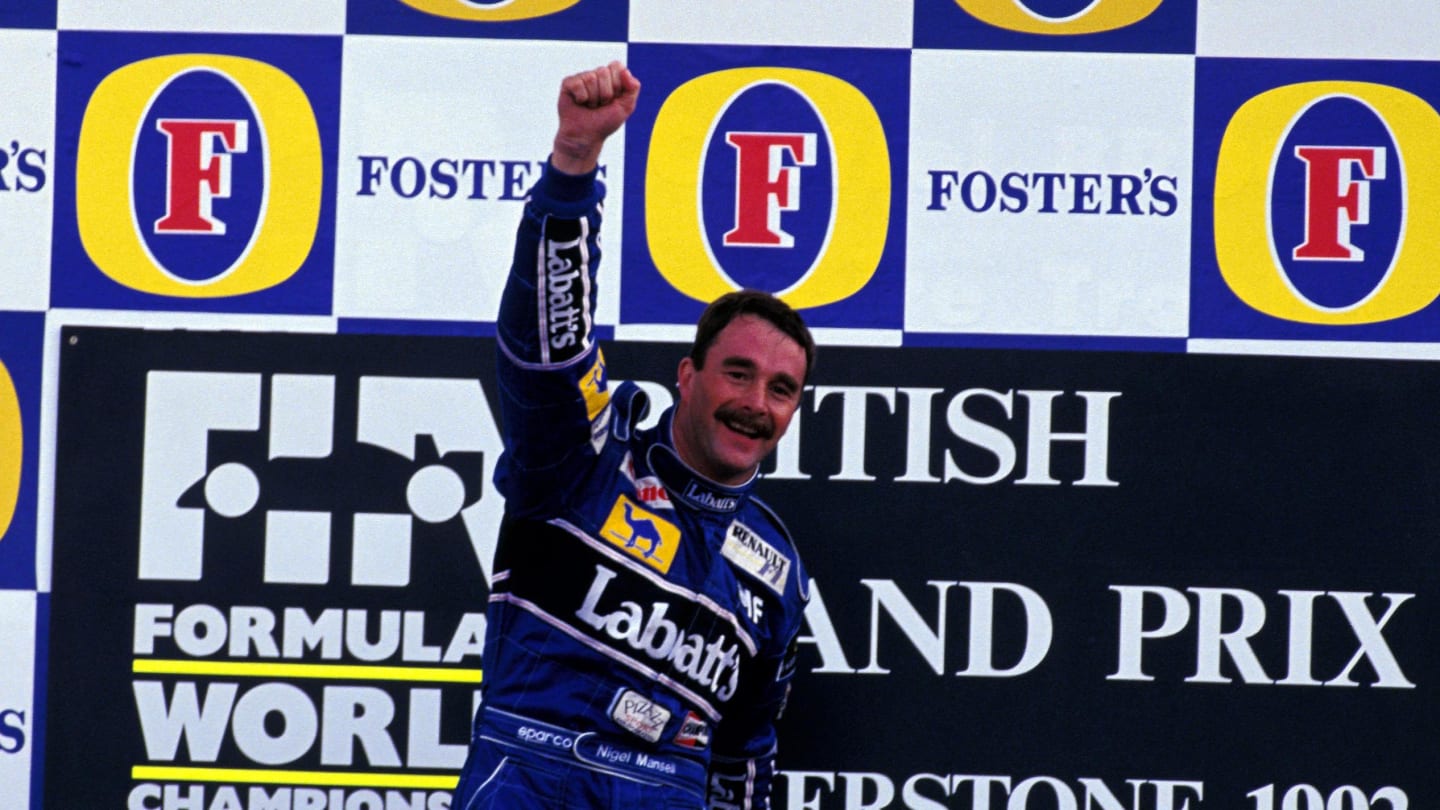
Feature
The other six champions who didn't defend their crowns
Share

Nico Rosberg shocked F1 fans around the world - and his own team too - when he announced his retirement just days after clinching his first world championship crown. But 2017 won’t be the first season where the defending champion hasn’t returned to defend his title - in fact, it’s happened six other times…
Juan Manuel Fangio (1952 – injury)
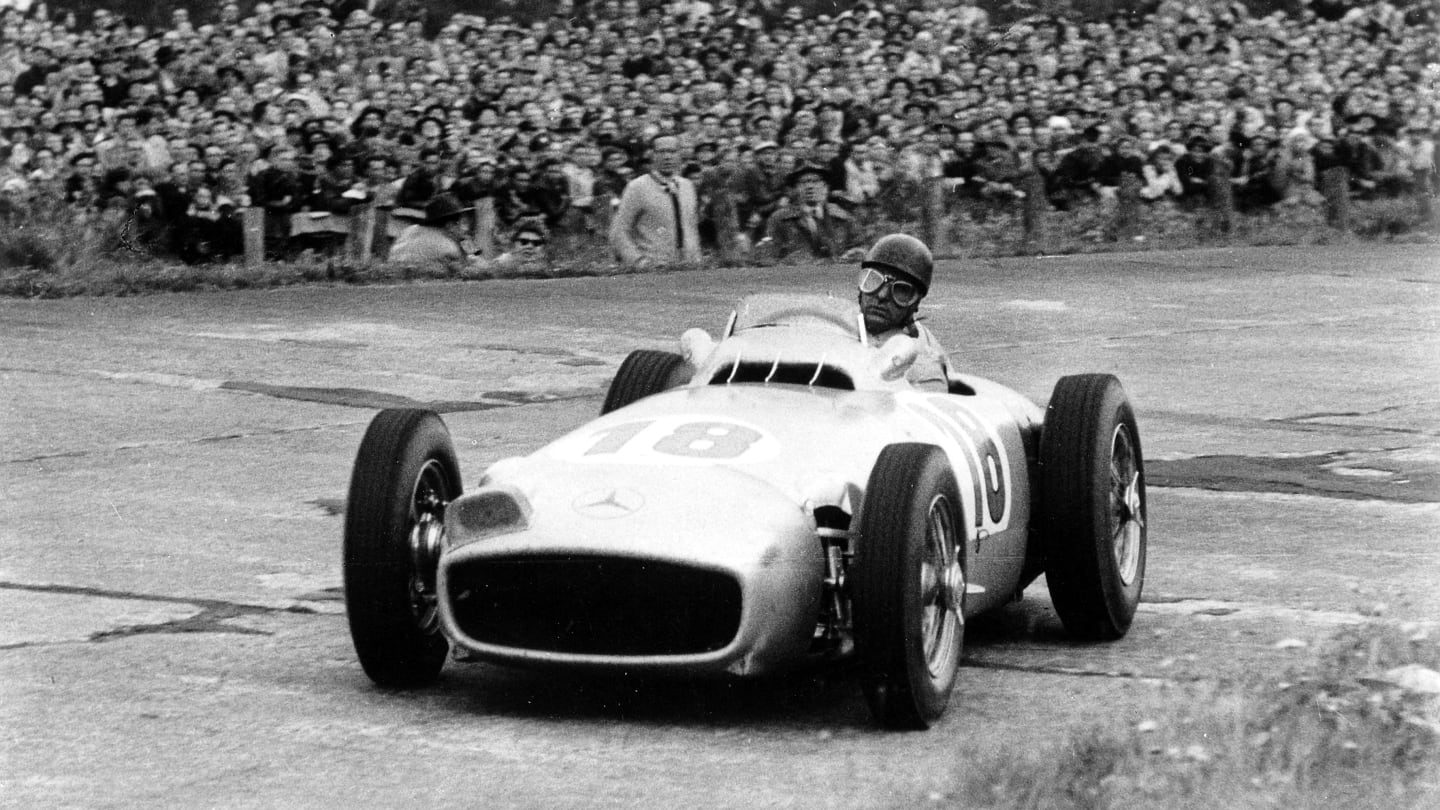
Although he missed the entirety of the 1952 season, Juan Manuel Fangio would return to F1 in 1953 and enjoy great success thereafter © Daimler AG
Having been narrowly beaten by Nino Farina in F1 racing's inaugural world championship in 1950, Fangio came good a year later as three wins and two other podiums proved enough to propel him to a first championship crown. Alfa Romeo - with whom Fangio had competed in both seasons - withdrew ahead of the '52 campaign, but the Argentine appeared to have a seat at BRM. Fate though had other ideas: Fangio was badly injured in a crash at a non-championship race at Monza, and ended up missing the entire eight-race calendar. In Fangio's absence, Ferrari's Alberto Ascari romped to the title - but Fangio would return in 1953, and go on to claim every championship between 1954 and '57.
Mike Hawthorn (1959 – retired)
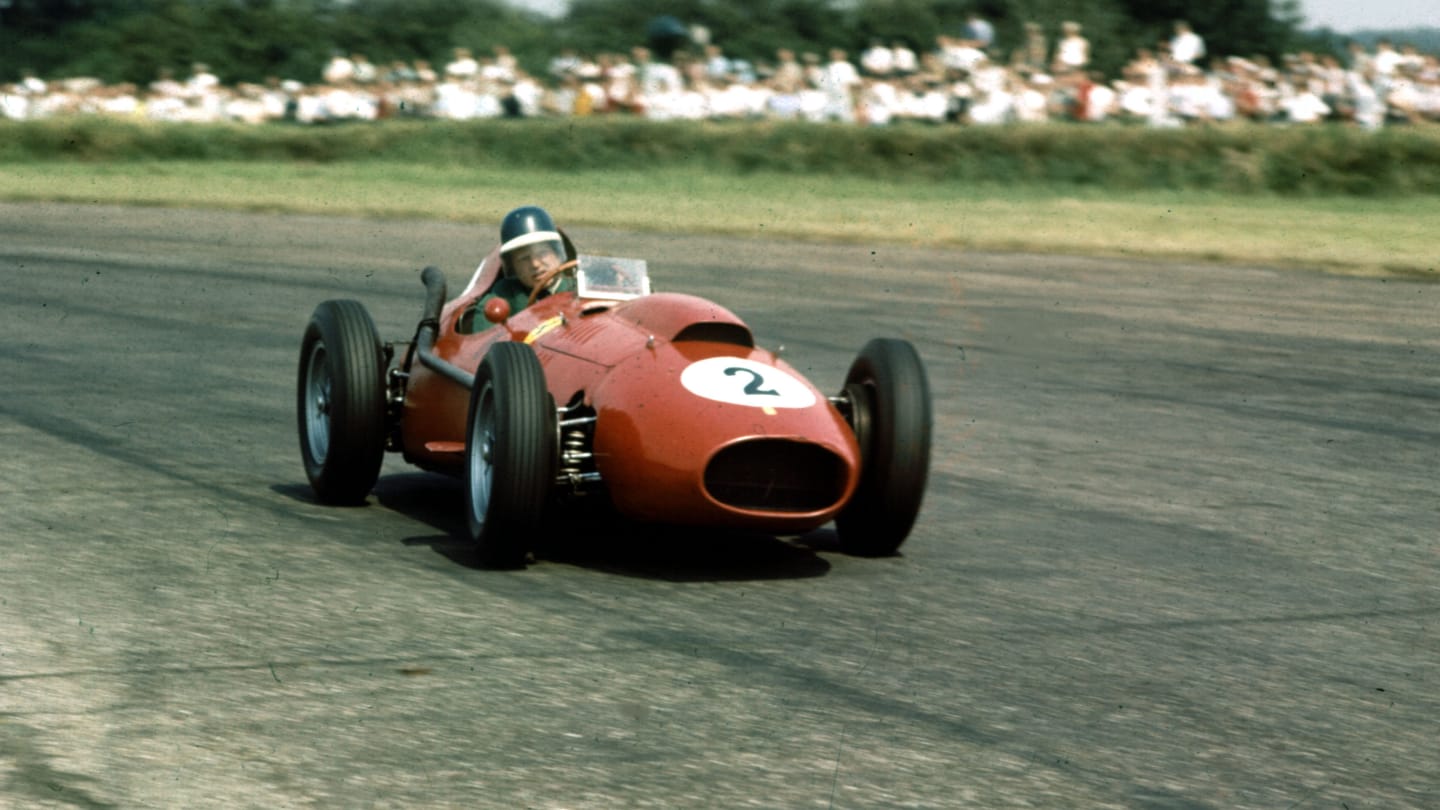
Mike Hawthorn (Ferrari Dino 246) in action in the 1958 British Grand Prix, Silverstone. World copyright: LAT Photographic
If Fangio's lack of title defence was fleeting, Mike Hawthorn became the first man to actively decide to retire following a championship triumph. The Ferrari man had just become Britain's first world champion in 1958, beating compatriot Stirling Moss to the title by just a solitary point – but he had also been deeply affected by the loss of team mate and friend Peter Collins during that year's German Grand Prix. Some at the time cited health concerns, with Hawthorn reportedly suffering a potentially terminal kidney infection. Tragically, and in spite of his decision to step away from Grand Prix racing, Hawthorn would lose his life in a road accident in 1959.
Jochen Rindt (1971 - deceased)
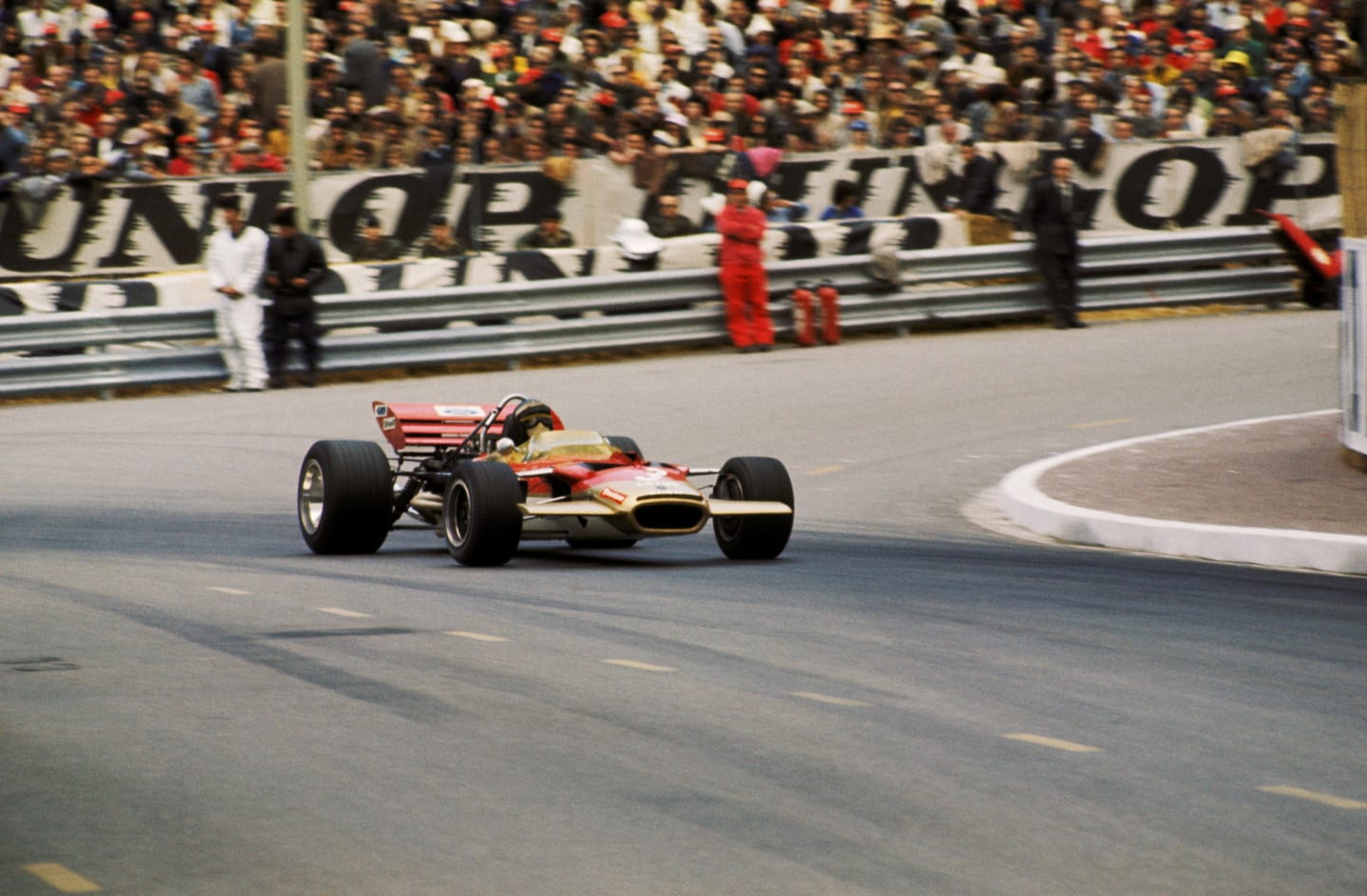
Monte Carlo, 1970: Jochen Rindt claimed a dramatic first victory in the Principality after passing Jack Brabham on the final corner of the race. © Sutton
Staggeringly talented and spectacular to watch, Jochen Rindt often cut a wild and flamboyant character on track – but by 1970 he had become the man to beat in F1 racing. Victory in the most dramatic of circumstances at Monaco - sealed on the last corner of the last lap - was followed by triumphs in the Netherlands, France, Britain and Germany, thrusting Rindt into a clear championship lead. Then came the ill-fated day at Monza, when Rindt lost his life during practice for the Italian Grand Prix. His lead was such that no one was able to deprive Rindt of the title - and he remains, thankfully, the first and only posthumous champion in F1 history.
Jackie Stewart (1974 – retired)
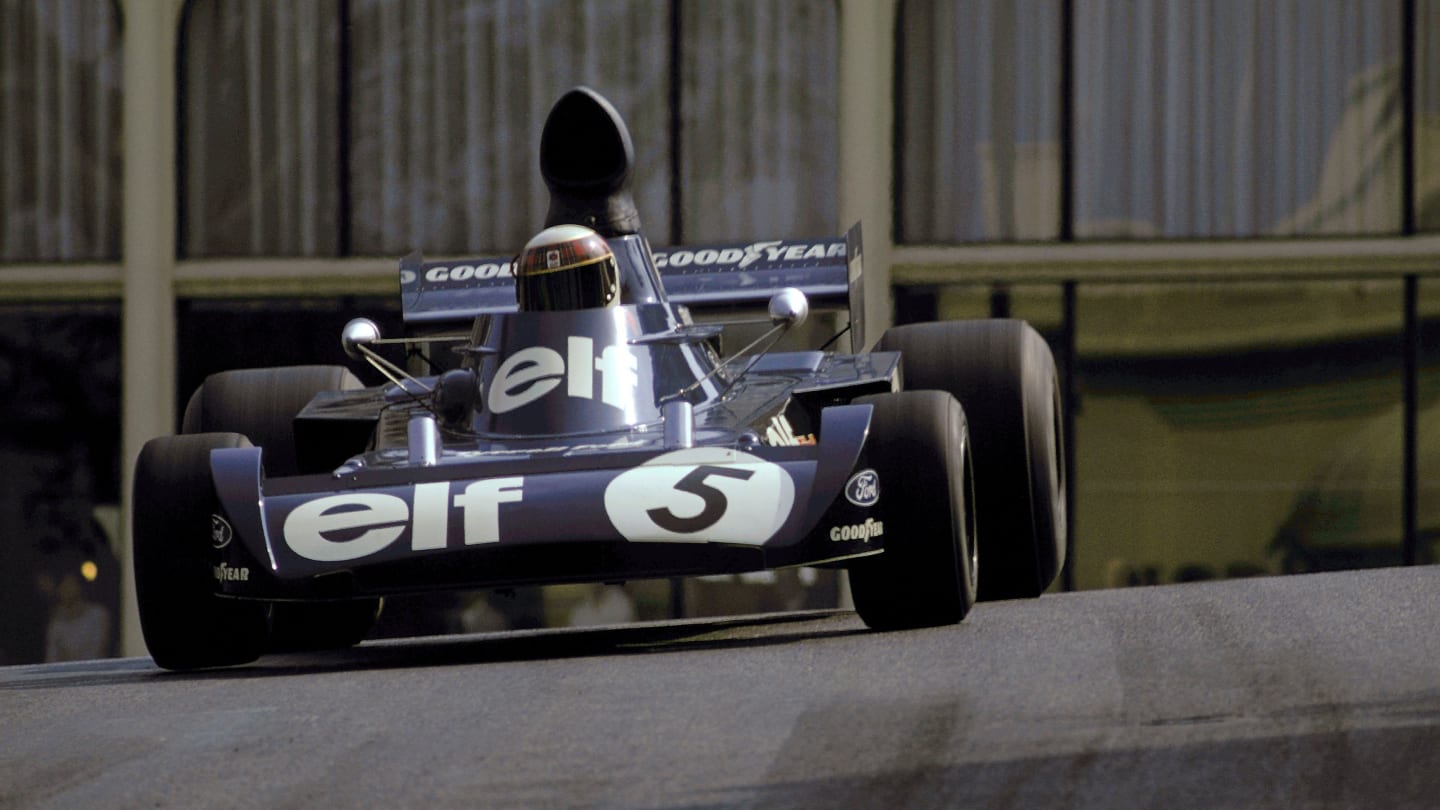
Jackie Stewart (GBR) Tyrrell 006/2 took his 25th GP victory in Monaco in 1973. © Sutton Motorsport Images
Sir Jackie Stewart was already firmly established as the F1 benchmark by the start of 1973, having won two world championships and racked up 14 poles, 22 victories and 35 podiums since a startling debut season in 1965. More success would follow in what would be his final season: five wins took him to 27 in total, a new record – and also helped secure an ultimately comfortable third F1 crown. But it was also a year tinged with tragedy: in what had been set to be Stewart's penultimate race weekend, his Tyrrell team mate and protege Francois Cevert was killed. The Scot retired immediately, one race earlier than planned. His dalliance with F1 was not complete - he would return as a team owner in 1997 - but as a driver he was able to walk away at the very peak of his powers.
Nigel Mansell (1993 – switched to Indycar)
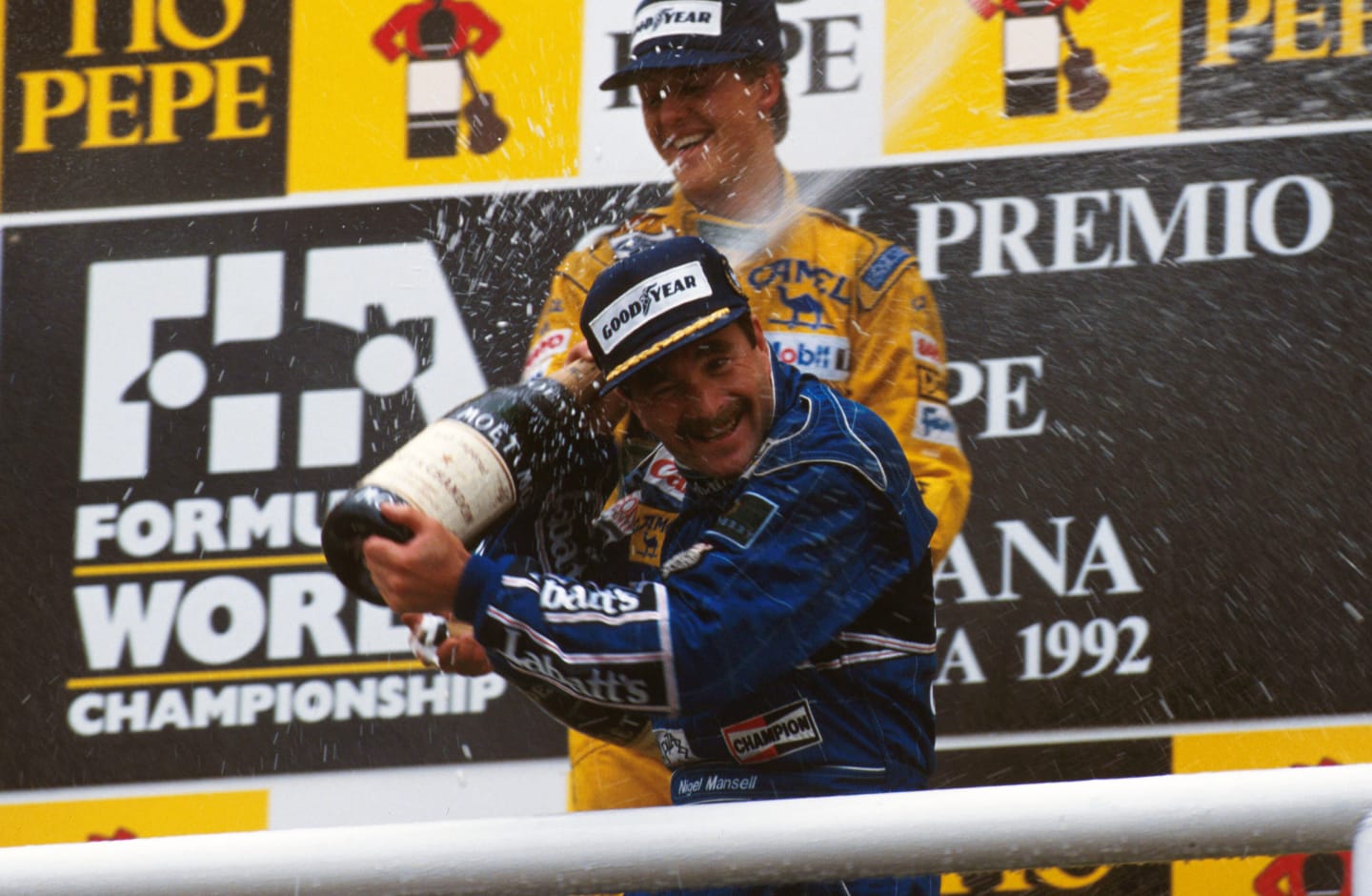
No shortage of success for Nigel Mansell in 1992 - but even so he would not defend his championship crown the following year. © Sutton Motorsport Images
'Il Leone', as the moustachioed Briton came to be known during his stint driving for Ferrari, also left the sport at the height of his powers – but unlike Jackie Stewart, Mansell's exit was not entirely of his own choosing. Having agonisingly missed out on a first world championship several times, Mansell finally made good in 1992, when he and Williams simply blitzed the opposition (in that year he also broke Stewart's record for most wins by a British driver). Politics were at play however: Williams, the clear class of the field, had opted to sign Mansell's former team mate Prost for 1993, but had not told the Briton. The news ultimately caused a fracture that neither party could repair, and they went their separate ways. Mansell would prove his enduring class in another field however: a switch to the USA and IndyCars yielded instant championship glory, with Mansell becoming the only man to hold the F1 and IndyCar crowns at the same time.
Alain Prost (1994 – retired)
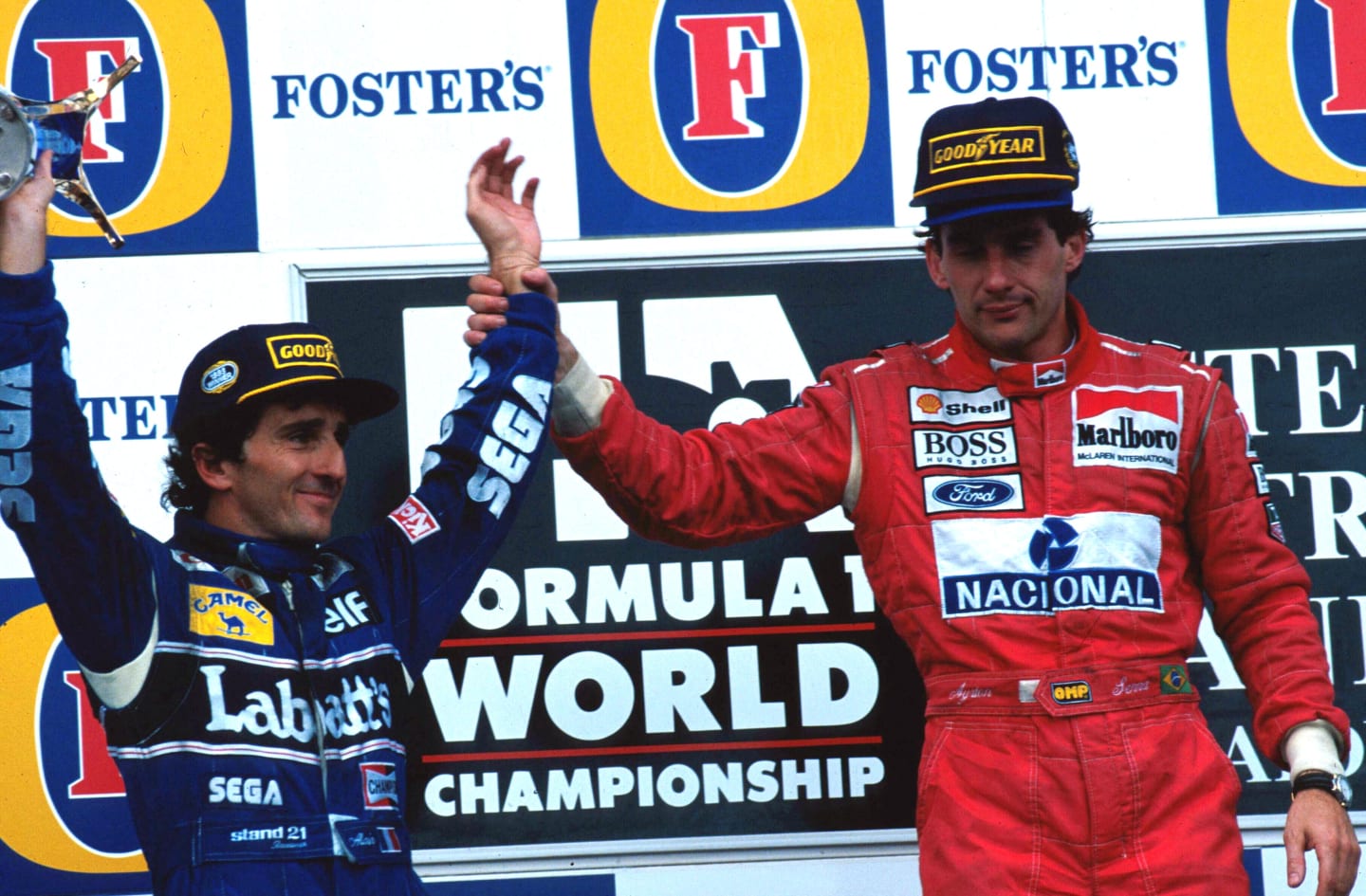
Race winner Ayrton Senna (BRA) McLaren (right) acknowledges second place finisher and World Champion Alain Prost (FRA) Williams (left) in his final race before retirement. © Sutton Motorsport Images
Prost had already stepped away from the sport in 1992, but only as a sabbatical – he signed a deal to join Williams for 1993, which prompted Nigel Mansell's move (above). At the time, Prost had a one-year clause that precluded Ayrton Senna from becoming his team mate. That honour instead went to Damon Hill, who ended up pushing Prost hard – as did Senna, who was still at McLaren. Prost and Williams were too strong to be denied however: the Frenchman claimed seven wins and 13 poles from 16 races, helping him clinch a fourth title two rounds early in Portugal. The triumph came just days after Prost announced his retirement - meaning that, for the second year running, F1 did not have a defending champion. Senna would move to fill the vacant Williams seat for 1994, having embraced his fierce rival on the Frenchman's last Grand Prix podium.
Nico Rosberg (2017 – retired)
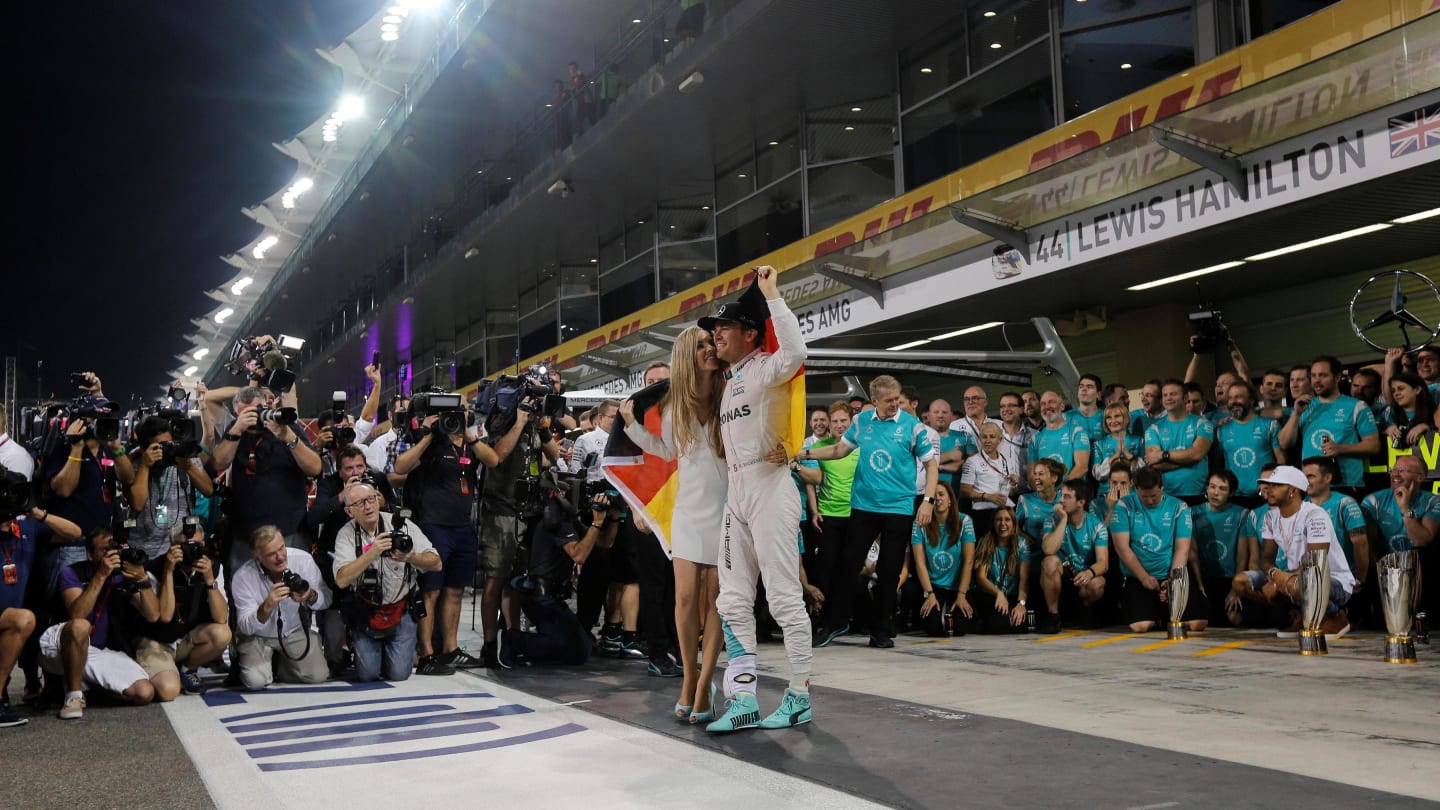
World Champion Nico Rosberg (GER) Mercedes AMG F1 and wife Vivian Rosberg (GER) celebrate title glory with Mercedes. © Sutton Images
Unlike many on this list, there was precious little forewarning of Rosberg's decision to retire following his draining, nerve-wracking first title in 2016. But just five days after securing the crown – and just a few hours before his official coronation - the German shocked the world with his decision to step away from the sport. "Since 25 years in racing, it has been my dream, my 'one thing' to become Formula One World Champion," Rosberg said. "I have climbed my mountain, I am on the peak, so this feels right." His decision sparked a scramble – in the media at least – to work out who would replace him at Mercedes, the unquestionable class of the field for the last three years. "There is time to savour the next weeks, to reflect on the season and to enjoy every experience that comes my way. After that, I will turn the next corner in my life and see what it has in store for me…"
Share
YOU MIGHT ALSO LIKE
News DRIVER OF THE DAY: Superb P2 drive in Shanghai gets your vote for Norris
News F1 Arcade opens first US location in Boston Seaport
News Perez rues bad luck with Safety Car in China after missing out on P2 as he vows to fight back in Miami
News Norris thrilled with ‘surprise’ Chinese GP podium as he reveals pre-race Ferrari bet
